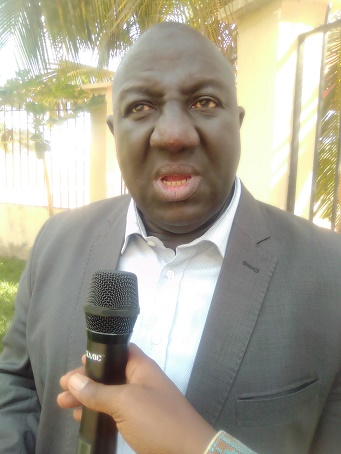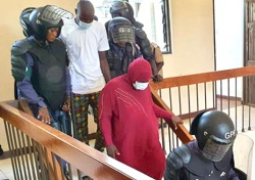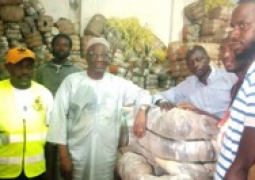
Since 2017 to date, the government has committed itself to ensuring that the Security Sector is totally reformed. Many security institutions since then have developed institutional policies and programmes that are in line with government’s priorities in ensuring that the country’s security is reformed with a view to enabling them to meet international standards.
The expectation of many Gambians among others is to ensure that the security sector is not only reformed but also inculcate human rights modules in the training manual of different security units of the country.
Momodou Badjie also claimed that the government White-Paper will not affect the Security Sector Reform (SSR) despite the fact that ‘some adversely mentioned security personnel’ are still serving in some security institutions within the country.
With funding from UNDP, the Office of National Security recently completed a five day Security Sector Reform, Data Analysis, Presentation and Report Writing. The retreat was held at the Abcas Lodge in the Foni Bintang District of the West Coast Region. The convergence, officials said, will enable them gather data of all the eight security institutions in the country.
After the retreat, they are also expected to write a report which will be submitted to President Barrow. The report, which is to be accompanied with recommendations will help guide the president in ensuring that his government achieves the SSR processes.
“When President Barrow came to power, the country’s security was not up to the expectations of Gambians. Therefore, the president went up to business quickly by meeting with regional and international partners in ensuring that they support the SSR processes which aim to strengthen the services delivery of the security in ensuring that they are effective, efficient and they adhere to the rule of law and more importantly they practise democracy and human rights,” Badjie said.
“We conducted a nationwide security assessment. The report in fact indicated a lot of deficit and malfunctioning of the security sector. Therefore, we tasked ourselves to come out with a comprehensive security strategic framework. We found out a lot of the acts do not commensurate with the reality on the ground. We thus went on to produce the National Security Policy and Security Sector Reform Strategy.”
The rightsizing of the security sector, he explained, is one of the issues they encounter. Rightsizing was introduced by the World Bank. “What they did was to look at the strength of our security sector and the population of the country and also the budget of the country. The World Bank found out that we spent a lot in the security sector,” Badjie added, claiming that they have currently collected the data of all security personnel of the country and they are trying to analyse it. “The data will help us determine whether we will do the rightsizing. The data will help us to see the next step we will take.”
“The Gambia has achieved a lot and we are moving on the right track to achieve the aspiration of the Gambian people when it comes to the SSR process. The issue of the security adhering to the principle of democracy and human rights are all factors in almost all the security strategies we have in the country,” he posited, adding that budgetary allocation is one challenge hindering the implementation of the SSR processes.
Asked whether we still have ghost workers in the security sector, the national security adviser said: “After the data collection and analyses, we will be able to tell whether we still have workers in the different security units of the country. We have interacted with all the heads of the different security units in the country. I am quite sure none of them will be negligent to have ghost workers in the respective security institutions they are heading.”
Malang Jatta, director of Policy and Planning at the Office of the National Security, spoke at length on the significance of the retreat, saying: “We collected the bio-data of all the security personnel of the country last year. We also conducted the mapping of all security installations throughout the country. All this are done so that the SSR can be informed by adequate data and information. We don’t want to act without any data and information,” he posited
“We collected the data of the security countrywide and we are interpreting it so that we can produce the report which will be able to tell whether we have ghost workers in the country’s sector or not. I can tell you that the SSR process is moving steadily. We have developed a lot of processes and most of the security institutions in the country have come out with their own strategy and others are currently reviewing their acts.”
“We want to make sure that the issue of human rights is embedded in the training curriculum in all security sectors so that any recruitment that is done, they are taught on human rights and others.”




